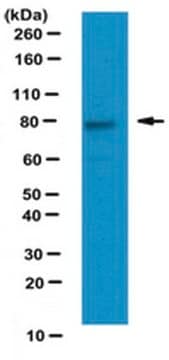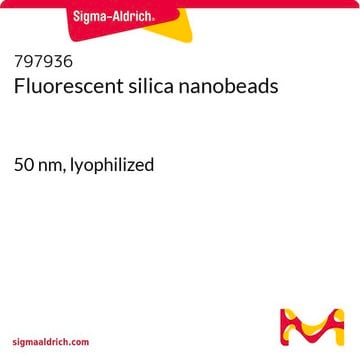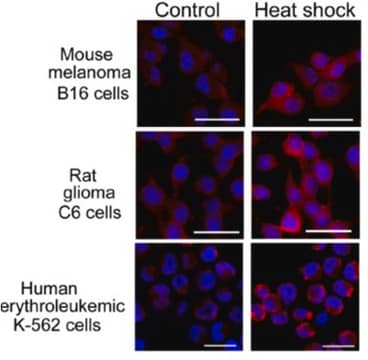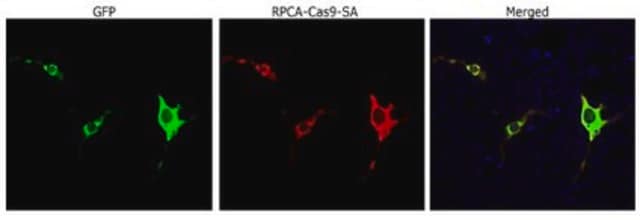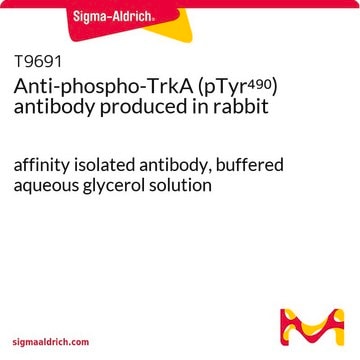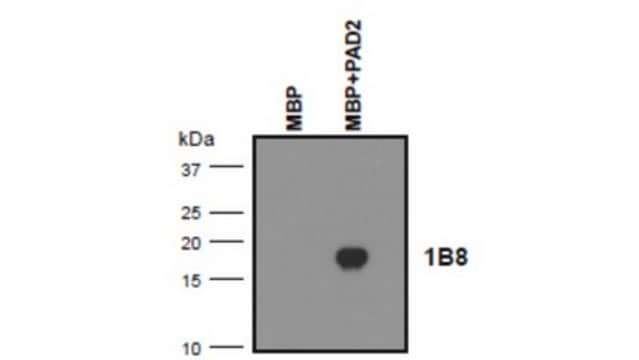MAB8691
Anti-Hepatitis C Virus Antibody, helicase domain NS3
Chemicon®, from mouse
Synonym(s):
HCV
About This Item
Recommended Products
biological source
mouse
Quality Level
antibody form
purified antibody
antibody product type
primary antibodies
clone
monoclonal
species reactivity
human
manufacturer/tradename
Chemicon®
technique(s)
ELISA: suitable
immunofluorescence: suitable
immunohistochemistry: suitable (paraffin)
western blot: suitable
shipped in
wet ice
Specificity
Immunogen
Application
Immunohistochemistry (Parrafin embedded)
Immunofluorescence
Immunoblot
Final dilutions must be determined by end user
Infectious Diseases
Infectious Diseases - Viral
Physical form
Storage and Stability
Legal Information
Disclaimer
Not finding the right product?
Try our Product Selector Tool.
Storage Class Code
12 - Non Combustible Liquids
WGK
WGK 2
Flash Point(F)
Not applicable
Flash Point(C)
Not applicable
Certificates of Analysis (COA)
Search for Certificates of Analysis (COA) by entering the products Lot/Batch Number. Lot and Batch Numbers can be found on a product’s label following the words ‘Lot’ or ‘Batch’.
Already Own This Product?
Find documentation for the products that you have recently purchased in the Document Library.
Our team of scientists has experience in all areas of research including Life Science, Material Science, Chemical Synthesis, Chromatography, Analytical and many others.
Contact Technical Service
